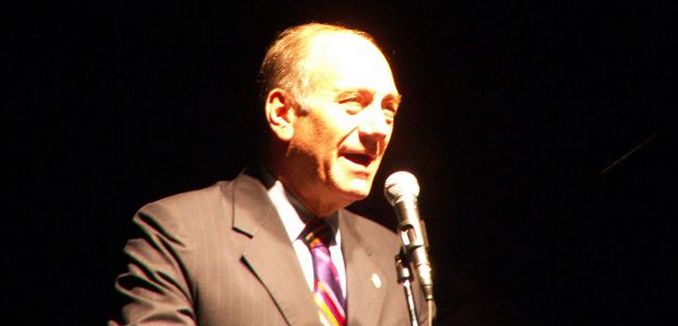In what is being dubbed as the biggest corruption scandal in Israeli history, former Prime Minister Ehud Olmert was convicted this week of bribery committed during his tenure as mayor of Jerusalem. Nine other defendants were convicted as well, including Olmert’s successor Uri Lupolianski, and three were acquitted in the two year trial.
The charges stemmed from the Holyland development, which saw developers bribe city officials to disregard zoning laws. The convictions reinforced a perception that in Israel, no one is above the law. Still the extent of the corruption exposed left some Israelis rattled.
Labor Party leader, Isaac Herzog, was quoted by the Los Angeles Times addressing this ambivalence.
In a Facebook post, the opposition Labor Party’s chairman Isaac Herzog welcomed the verdict and hailed it as a “mark of honor” for law enforcement and the battle against governmental corruption in Israel, while feeling “personally sorry” for Olmert.
Not everyone was conflicted about the message of the conviction. Herzog’s predecessor as Labor Party leader, Shelly Yacimovich said that the conviction marked “an important day for the rule of law.” She blasted Olmert as a “habitual criminal who repeatedly, over decades, took advantage of his power and connections to get rich, and has succeeded in evading justice time and again.”
Economy Minister, Naftali Bennett, of the Habayit Hayehudi party echoed Yacimovich’s sentiments, saying that Israel “has cleansed itself of corruption.”
A leader is allowed to make mistakes, but may not be corrupt. Corruption is when you use the public office for personal gain. The minute a public servant starts working in his own interests instead of the public’s, the public stops believing in him and the country.
In his analysis of the verdict, the Jewish Journal’s Israel analyst, Shmuel Rosner, wrote that Israel’s legal system would be “rejuvenated by this verdict.” Rosner, observed that, in recent years a number of high-profile corruption cases – including an earlier one against Olmert – had failed to yield significant convictions. (In 2012, Olmert had been convicted of “breach of trust” but not two more serious corruption charges for actions taken during his time as Prime Minister.)
Rosner also noted the major political effect the the conviction would have:
In recent months, some analysts and pundits were still toying with the ridiculous idea of Olmert as the “comeback kid” of Israeli politics. The former PM was one of PM Netanyahu’s harshest critics. He spoke quite harshly about Israel’s policies, about the way the government is handling the peace process and other issues – giving some people on the left the hope that one day, if he is acquitted, Olmert might be the savior of Israel’s left. …
Obviously, this idea is now dead. Olmert was not popular even before the verdict, and I find it hard to believe that he could have gotten a mandate from the voters to become Israel’s Prime Minister again. But even in Israel’s crazy political atmosphere, a person can not be both in jail and the leader of a ruling political camp. The Olmert hope is over – the Israeli opposition will be forced to look for someone else.
Ehud Olmert was mayor of Jerusalem from 1993 to 2003 and prime minister of Israel from 2006 to 2009.
[Source: Jonathan Klinger / WikiCommons ]




